Crows belong to the avian family, along with the raven. In general, corvids are notorious for being mischievous birds that can be a pest for both animals and humans. Corvids often steal food and cause mayhem when looking for food in your trash can. What’s more, they are also known to tease your four-legged friend and even chase after large raptors, including hawks. So why do crows attack hawks?
Crows often attach hawks because they see them as a threat. To defend themselves from a natural predator, crows often go on the offensive and pester the predatory bird. This behavior usually drives the other bird away and keeps the crows safe.
There are many cases where birdwatchers have spotted brave crows tailgating a hawk. But are these animals just annoying creatures? Or is there genius behavior driving the crow to attack a hawk?
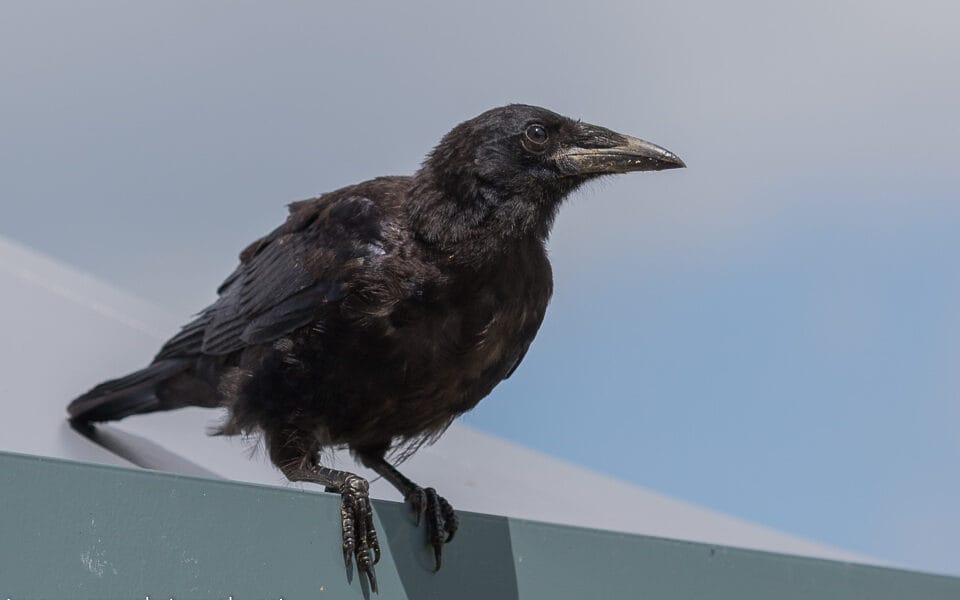
While crows are known by many as devious and mischievous birds, they are also some of the most intelligent birds. But there are other things we need to consider when answering the question “why do crows attack hawks?”.
Crows and ravens are known for both their resilient mischievous nature as well as their impeccable intelligence. Studies show that ravens can use tools and even plan, similar to small children.
Research indicates crows can recognize faces and tend to hold a grudge against people who have tried to harm them. Should we accept that these intelligent birds are typical of the ‘know-it-all’ humans that tend to be more than a bit rude to others they deem of lesser intelligence? Potentially. Let’s unpack a bit more of the crow’s crude and rude behavior and see why they would attack a hawk.
Crows Mobbing Other Birds
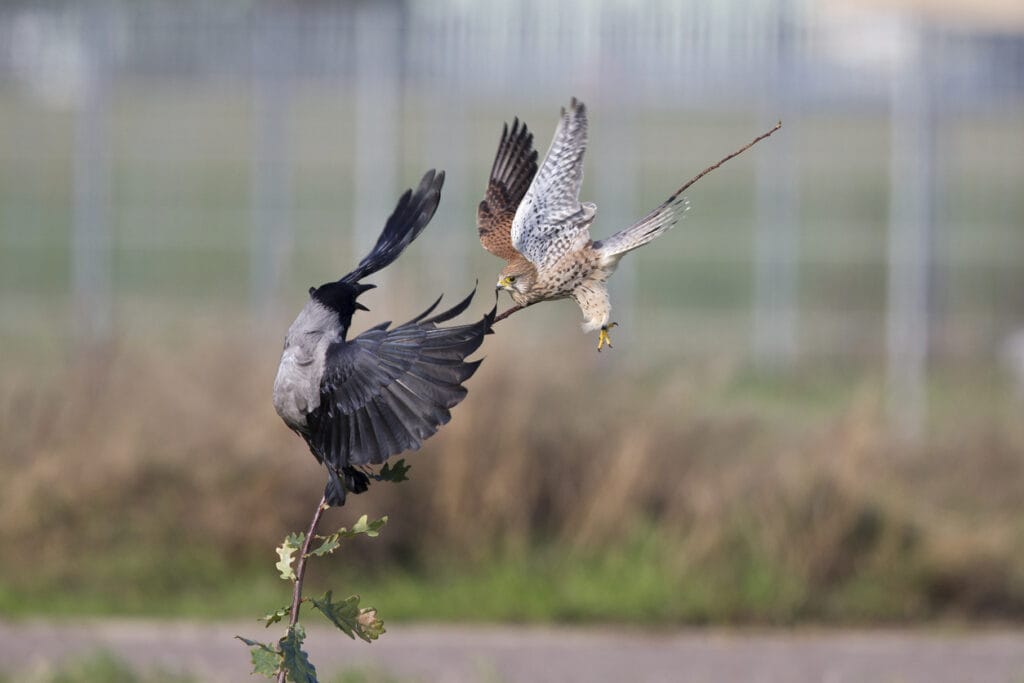
One of their most famous behaviors is mobbing. Those who have seen crows mob a larger bird are often curious about why crows would attack seemingly more powerful birds like the hawk. To understand why do crows attack hawks, it’s first important to understand what mobbing it.
Crows use mobbing tactics to harass larger birds such as hawks. But the surprising part is not that the crows are mobbing a hawk. Instead, that the hawk or raptor does not seem to defend itself.
What is Mobbing?
Author Note: Mobbing is not reserved for crows but is employed as a tactic by many smaller birds. Mobbing is the term given to the behavior of smaller species chasing larger birds. The smaller birds will swoop and seem to attack larger birds.
These large raptors are often just perched or gliding when birds like crows mob them. And the crows don’t just swoop to irritate. They will sometimes even strike the larger birds of prey too.
What Other Birds Mob?
Along with crows, sparrows and ravens often exhibit this brave behavior. But raptors have also been seen to mob other birds. If we look at these other species, we’ll learn a bit more as to why do crows attack hawks.
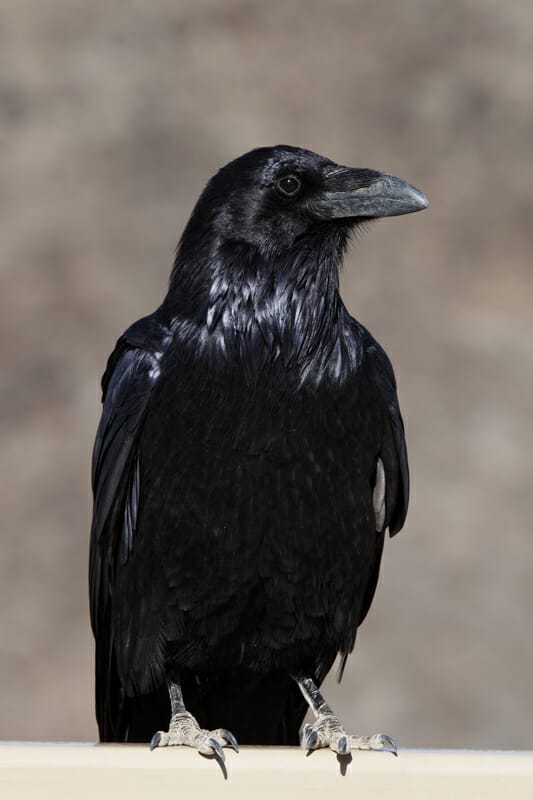
Why Do Birds Mob?
Most often, the attackers will mob to drive the larger bird, often perceived as a threat, away. If the bird, or even mammal, is perceived as a threat. On their own, birds like crows and sparrows can’t install too much fear. But when a large number of the mob? That’s another story.
There is no set time for mobbing to commence, but as an avid birder knows, spring and summer reap the most activity. Spring and summer are breeding seasons for most birds, and, as such, behavior can become more aggressive, protective, and territorial.
But the birds doing the mobbing are not bullies. They are usually trying to protect their nests, eggs, habitat, food sources, or even just themselves. So mobbing is a form of attacking defense.
What Other Birds Will Crows Mob?
Crows often target Hawks, and since they are a formidable hunter, this comes as no surprise. But crows will target any raptor or other bird they see as a threat. Even herons could be targeted if they threaten the crow’s nest.
Mobbing could also be understood as a warning for the larger birds to simply steer clear- they are not easy pickings.

Different Types of Mobbing
There are no ‘rules’ to mobbing, and there are also different ways for birds to mob another bird. Sometimes, a smaller bird will mob a larger bird to maintain its territory. When the bird has left the attacking bird’s territory, the mobbing will cease. That is one simple type of mobbing.
There is another type of mobbing, which is slightly more aggressive. The Red-wing Blackbird is notoriously for its aggressive mobbing antics and has been known to attack smaller birds.
Even you could be on the receiving end of an angry red wing if you encroach too close. Sometimes one or two birds mobbing will attract several other birds. Power in numbers is essential, especially when small birds are mobbing larger raptors. The mobbing birds will even call out, giving a type of war cry to entice other birds of differing species, to join in.
Aside from hawks, owls are often targeted by mobbing birds. This is because owls pose a great threat to smaller birds. The owl is a nocturnal hunter, and the smaller birds understand that an owl poses a great nighttime risk to their home territory.
Smaller birds are known to chase away owls, making their nesting area a safer place for them at night. Birders who are trying to find an owl may make use of this knowledge. Owls are notoriously difficult to spot, but if you hear a commotion in an area where owls would be common, look up.
You might just be able to see an owl thanks to mobbing birds chasing him away.
Why Don’t Hawks Retaliate Against Crows?
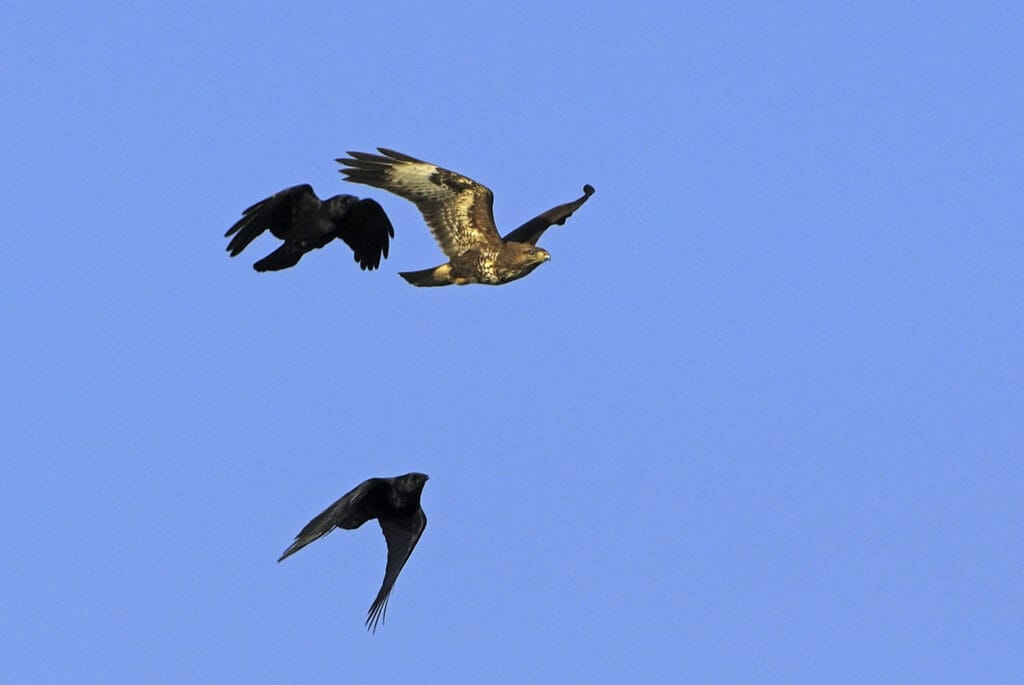
Often, you will see a bird being mobbed. But what you won’t see is the mobbed bird attacking back. Sometimes, you may even see the larger birds sitting through the onslaught.
Author Note: But if the mobbing doesn’t relent, you’d expect the bird to retaliate, right? The interesting thing is that the bird will often simply fly away instead of retaliating against a mobbing.
Can Mobbing Harm a Hawk?
While it is possible for the mobbing to inflict some harm, it is uncommon. The birds do not generally intend on physical harm. Mobbing is a bully tactic into making the other bird move away. But as the larger bird does fly away, that’s when you might see a crow go in for a shot. This might just be to have the final say, or they get brave as the larger bird retreats instead of attacks.
As a human, filled with pride and ego, it seems difficult to understand why the bigger bird does not retaliate. But remember, the birds aren’t distracted by these base emotions. Instead, the bird uses its intelligent instincts to understand that the energy it would take for them to attack back, kill, and eat the smaller, more agile birds is simply not worth it.
The mobbing birds are smaller, yes, but that also gives them an advantage. They are more swift, agile, and it is not that easy to catch them.
But crows are often similar in size to hawks, so why don’t hawks retaliate against crows?
Hawks Aren’t As Aggressive
Most hawks have both the talons and the strength to take down a crow, so why don’t they? A crow would make a good meal too. However, despite their similarities in size, the crow is notoriously agile for its size.
This means that the clever crow can outmaneuver a large hawk. Plus, it would take plenty of energy for the hawk to catch the crow. Unless the hawk is up for the challenge, he won’t even try. This doesn’t mean that the birds of prey are lazy, but rather that they understand how best to conserve and use their energy. Efficiency is vital in the animal kingdom.
Areas where eagles and hawks nests are often the same areas that crows love. So, how would a nesting hawk respond? Hawks are known to remain in the same area for many years.
Hawks and other birds of prey are notoriously fierce protectors of their nests. If a hawk is mobbed, it won’t retaliate, even if it is in its nesting territory. But there has to be no danger to the nest itself. Otherwise, the hawk might react differently.
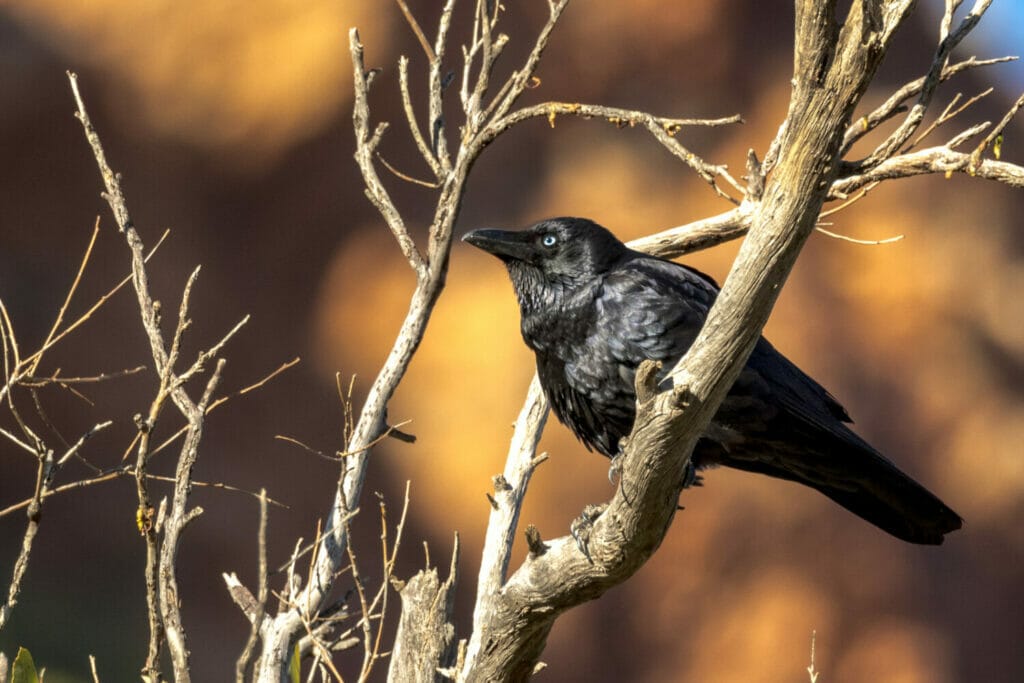
Hawks May Defend Their Nests
However, researchers find that crows tend to stay away from a nesting bird of prey. They must know that the danger is simply too great. Crows don’t attack a hawk when it’s near the nest, so knowing precisely what the hawk would do is impossible.
However, we know that crows are intelligent. So, we can assume crows understand that the hawk would not simply fly away from its nest but would retaliate.
Is mobbing considered bullying behavior? Sure it is. Especially if you look up to see a peaceful hawk perched in a tree get surprised and attacked by a mobbing group of crows.
However, birds of prey like hawks are formidable hunters, and crows are sometimes just defending themselves or their territories. And don’t hate the crow for its bullying mobbing tactic. Crows are not the only bird to engage in mobbing. Even small species like the wren, chickadee, or titmice can be mobbers.
Another theory researchers have is the crow will Mobb a larger bird to show off in a social setting. In this way, the crow shows others it may not be a raptor, but it still shouldn’t be messed with.
Pulling Tails
But mobbing isn’t the only trick that these tricksters use. Tail-pulling is often seen amongst crows and ravens. In Alaska, it is not uncommon for corvids to pull dog’s tails. And no, the tail pulling is not only limited to dogs.
In what seems like bizarre behavior, crows will pull any animal’s tail, from hawks to cats and dogs to parakeets.
Are Hawks Afraid of Crows?
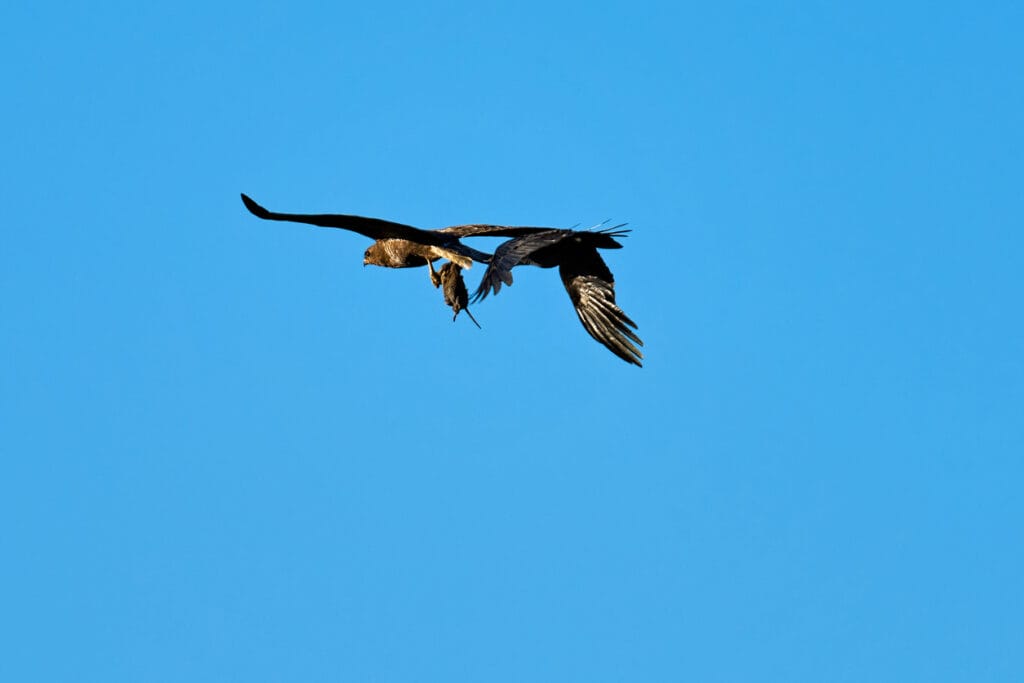
Author Note: While Hawks may not view crows as a threat, they will fly away from them when mobbed. Eagles constitute a significant threat to hawks as a smaller hawk can make an excellent meal for a larger eagle. A large owl will also prey on a hawk.
Researchers suspect both owls and crows will ‘hunt’ hawks as a type of sport. Nesting Hawks may also be wary of snakes and raccoons as they often come to raid a Hawk’s nest. And while hawks are not generally afraid of each other, they will fight for territory if they have to.
Conclusion
We hope you enjoyed this article on why do crows attack hawks. Crows are very aggressive in nature which is often why they bully other species of birds. Good luck with your bird watching!
Fly high friends!
FAQ
Crows may chase hawks as a form of mobbing behavior, this is when a group of birds mob or attack a predator in an attempt to drive it away. This behavior is often seen in crows and other corvids and is typically a way to defend their territory and protect their young from predators such as hawks. Additionally, crows may also hold grudges against individual predators and chase them if they have previously been seen hunting in their territory.
Hawks do eat crows as they are carnivorous birds of prey that eat a variety of different animals, including small mammals, reptiles, insects, and other birds. Crows are common prey for many species of hawks, particularly larger hawks such as the Red-tailed Hawk. However, crows are also known for their intelligence and ability to defend themselves, so hunting them may not always be an easy task for the hawks.
No, crows are not considered to be birds of prey. Instead, they belong to a family of birds that includes crows, ravens, magpies, and jays known as Corvids. Corvids are known for their intelligence and adaptability, and are opportunistic feeders, eating a wide variety of food including insects, fruit, seeds, and even small animals. They are not hunters, but rather foragers and scavengers, which means that they use different techniques to find and obtain food than raptors.
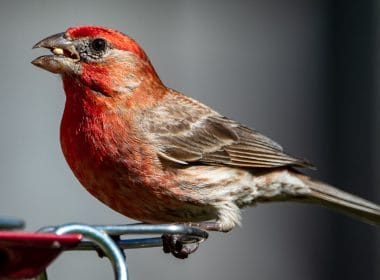
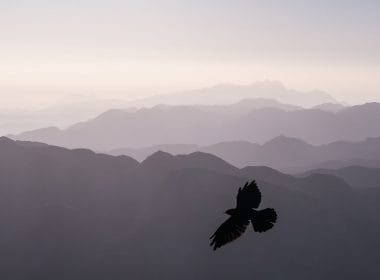
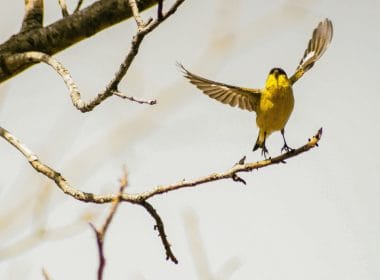
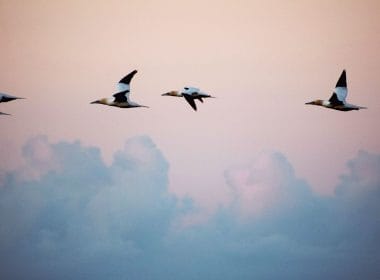
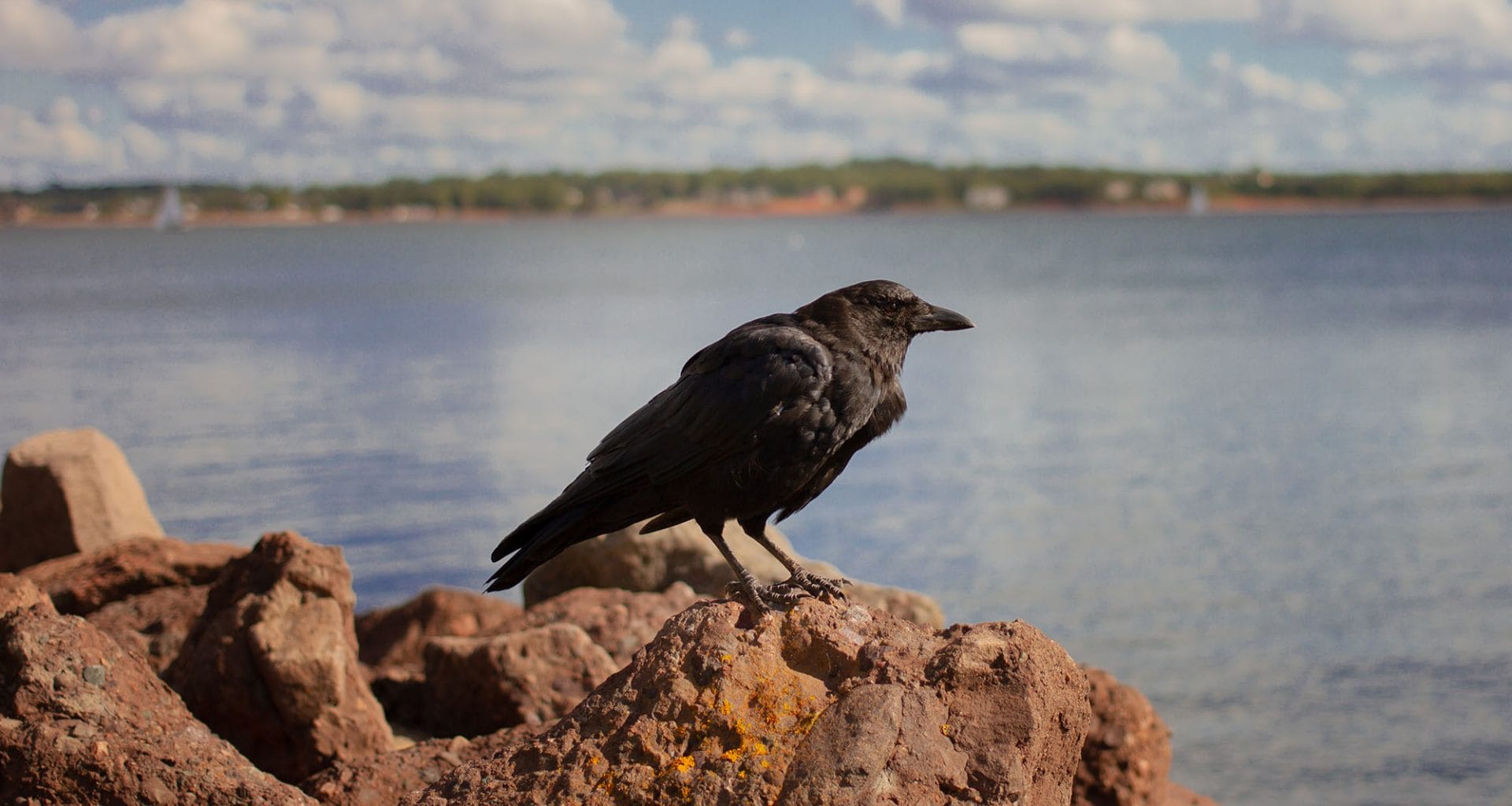
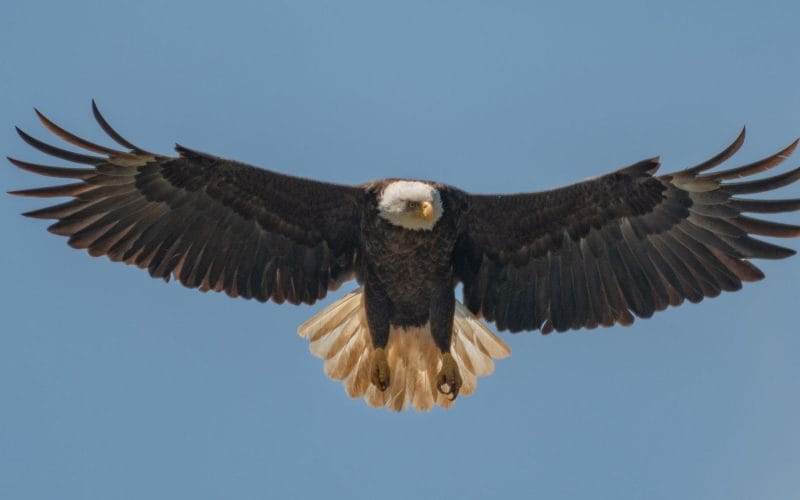
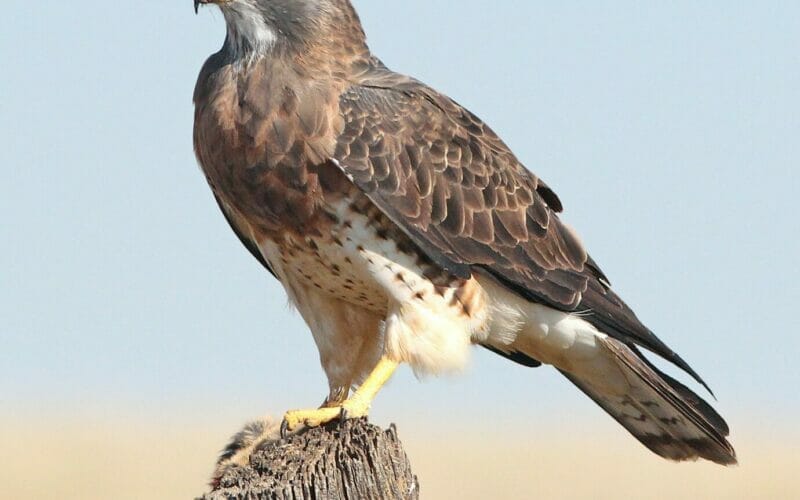
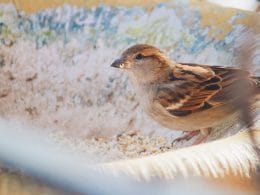

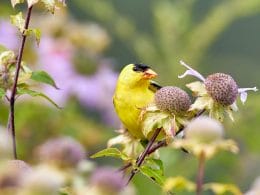
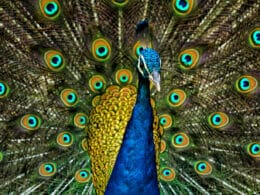
I saw two crows and a hawk flying, and it was exactly how you were saying in this article. Is there a spiritual meaning and understanding of this, when watching this??
Please respond Clint find anymore info..
I’m in eastern CT & was bringing my dog out this morning, saw a crow absolutely harassing a reddish hawk. I was stunned seeing this so naturally I went to the internet. Came across your awesome article, which I can’t thank you enough for. I really enjoyed reading it and I had some good laughs.
Now every time I see a crow, I’m going to call them a “mobster of the sky” – so perfect!
A few days ago a northern goshawk came a bit too close to the carrion crows nesting in the trees opposite our balcony. At first it was just the usual case of mobbing you can frequently observe in urban areas around this time of year. The parents vs. the goshawk, nothing special.
But this time for some reason the goshawk circled back after it was chased away. Shortly after the nesting crows let out what could only be described as a rallying cry. About a minute later a larger host of crows arrived and surrounded the goshawk in flight. Shortly after the frantically flapping bird plummeted to the ground where it was mercilessly pecked to death. Once dead the crows left the corpse alone.
The same happened to a mediterranean gull about a month ago when our local crows began nesting so it looks like a pattern is emerging. Maybe our resident crows have developed a rather “final” strategy to deal with the increase in predatory birds in recent years. It appears they force the invader higher into the air and then attack their wings until they loose the ability to fly. Gravity does the rest. The number of birds on the attack seems to vary by size of the predator. The gull was only attacked by maybe 10 crows whereas the goshawk was enveloped by roughly 40 birds. From my balcony it looked like a black cloud had swallowed the goshawk before it fell down, it all went suprisingly fast.
For reference I live in eastern Germany and the local population in the immediate area (~1km) counts roughly 500 almost exclusively non-migratory carrion crows.